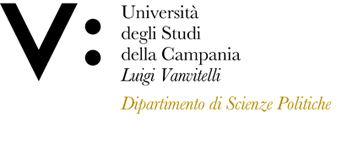Diego GIANNONE
Insegnamento di GLOBAL POLITICS
Corso di laurea magistrale in RELAZIONI E ORGANIZZAZIONI INTERNAZIONALI
SSD: SPS/04
CFU: 8,00
ORE PER UNITÀ DIDATTICA: 48,00
Periodo di Erogazione: Primo Semestre
Italiano
| Lingua di insegnamento | Italiano |
| Contenuti | L’insegnamento di Global Politics intende fornire agli studenti una analisi approfondita delle principali ragioni che hanno portato alla crisi dell’ordine internazionale liberale. Attraverso una prospettiva di lunga durata, verranno ricostruite le tappe che hanno condotto all’affermazione e poi al declino dell’Occidente, evidenziando sia le cause della crisi dell’egemonia statunitense sia i rischi e le sfide posti dall’emergere di potenze alternative, quali Russia e Cina. |
| Testi di riferimento | 1) V. E. Parsi, Titanic. Naufragio o cambio di rotta dell’ordine liberale, Il Mulino, Bologna, EDIZIONE 2022. |
| Obiettivi formativi | Tenuto conto dei contenuti del corso, sono di seguito indicati i descrittori dei risultati di apprendimento previsti: |
| Prerequisiti | Si richiede che gli studenti abbiano una conoscenza basilare dei concetti fondamentali e delle principali prospettive teoriche delle Relazioni Internazionali. |
| Metodologie didattiche | L’insegnamento si articola in lezioni frontali e interattive, seminari di approfondimento, attività didattica integrativa e studi di caso. È previsto l’utilizzo di supporti informatici o materiali multimediali. |
| Metodi di valutazione | L’esame consisterà in una prova orale volta ad accertare l’apprendimento dei contenuti dell’insegnamento e dei libri di testo. Il punteggio della prova è attribuito mediante un voto espresso in trentesimi. |
| Altre informazioni | La frequenza non è obbligatoria, ma è vivamente consigliata. Ulteriore materiale didattico potrà essere fornito nel corso delle lezioni agli studenti frequentanti. |
| Programma del corso | Il programma di insegnamento si articola nelle seguenti sezioni: |
English
| Teaching language | Italian |
| Contents | The Global Politics course aims at providing students with an in-depth analysis of the main reasons that led to the crisis of the liberal international order. Through a long-term perspective, the stages that led to the rise and then the decline of the West will be reconstructed, highlighting both the causes of the crisis of US hegemony and the risks and challenges posed by the emergence of alternative powers, such as Russia and China. |
| Textbook and course materials | 1) V. E. Parsi, Titanic. Naufragio o cambio di rotta dell’ordine liberale, Il Mulino, Bologna, 2022 edition. |
| Course objectives | Taking into account the course content, the descriptors of the expected learning outcomes are given below: |
| Prerequisites | Students are expected to have a basic knowledge of the fundamental concepts and main theoretical perspectives of International Relations. |
| Teaching methods | The teaching consists of face-to-face and interactive lectures, in-depth seminars, supplementary teaching activities and case studies. The use of IT and multimedia materials is envisaged. |
| Evaluation methods | The examination will consist of an oral interview designed to ascertain the learning of the teaching content and textbooks. The test is marked by a grade expressed in thirtieths. |
| Other information | Attendance is not compulsory, but strongly recommended. Additional teaching material may be provided to attending students during the course of the lectures. |
| Course Syllabus | The teaching programme is divided into the following sections: |








